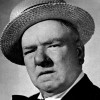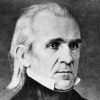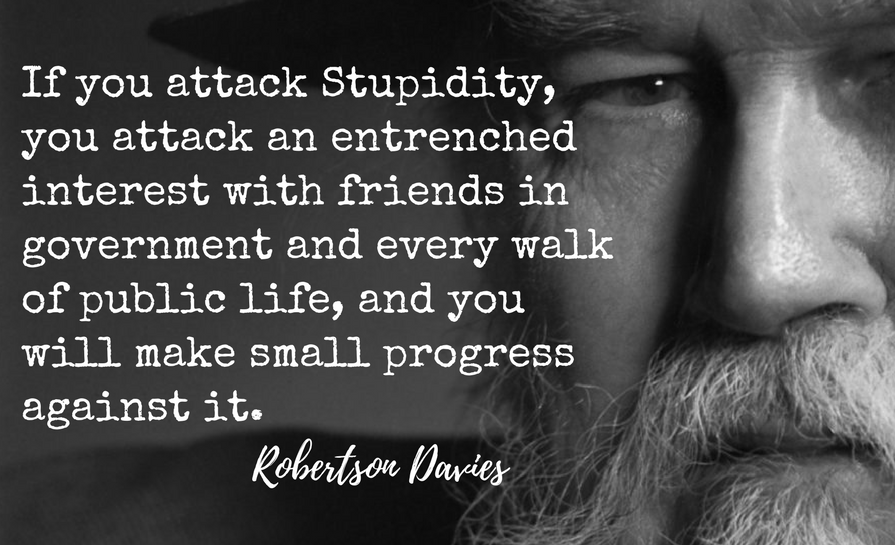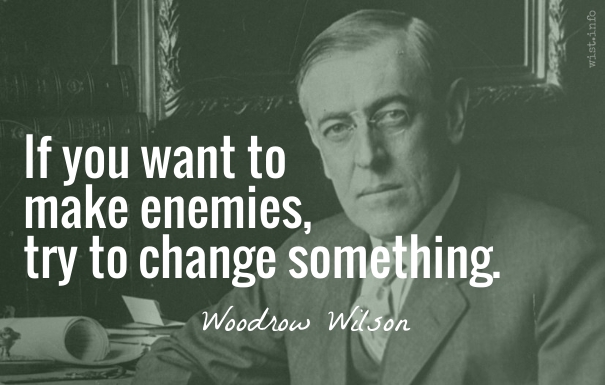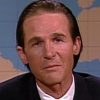A fanatic is always the fellow that is on the opposite side.
Quotations about:
opposition
Note not all quotations have been tagged, so Search may find additional quotes on this topic.
Standing up to your government can mean standing up for your country.
Bill Moyers (b. 1934) American journalist and public commentator
Closing comments, NOW (PBS) (2003-02-28)
(Source)
Regarding patriotism and opposition to the impending war in Iraq. Moyers quoted the comments in a speech to National Conference for Media Reform (St Louis) (2005-05-15); the phrase is often cited to that occasion.
It [political opposition] is like dancing with a bear. When you’re dancing with a bear, you can’t get tired and sit down. You have to wait for the bear to get tired.
Joycelyn Elders (b. 1933) American pediatrician, public health administrator, academic
Keynote Speech, Sistersong Conference, Chicago (2007-06-03)
(Source)
We are in this lifetime together. And maybe it’s possible to appreciate the other guy for the way his mind works, even when he’s not working your way.
Norman Lear (1922-2023) American television writer-producer
“What makes Norman Lear, at 98, still tick?”, interview by Jonathan LaPook, CBS News Sunday Morning (2021-01-10)
(Source)
Being against evil doesn’t make you good.
Ernest Hemingway (1899-1961) American writer
Islands in the Stream, Part 1 “Bimini,” ch. 4 [Roger] (1970)
(Source)
In this country, people don’t vote for, they vote against.
The aggressor is always peace-loving (as Bonaparte always claimed to be); he would prefer to take over our country unopposed. To prevent his doing so one must be willing to make war and be prepared for it. In other words it is the weak, those likely to need defense, who should always be armed in order not to be overwhelmed. Thus decrees the art of war.
[Der Eroberer ist immer friedliebend (wie Bonaparte auch stets behauptet hat), er zöge ganz gern ruhig in unseren Staat ein; damit er dies aber nicht könne, darum müssen wir den Krieg wollen und also auch vorbereiten, d. h. mit anderen Worten: es sollen gerade die Schwachen, der Verteidigung Unterworfenen, immer gerüstet sein und nicht überfallen werden; so will es die Kriegskunst.]
Karl von Clausewitz (1780-1831) Prussian soldier, historian, military theorist
On War [Vom Kriege], Book 6, ch. 5 “Character of Strategic Defense [Charakter der strategischen Verteidigung],” (6.5) (1832) [tr. Howard & Paret (1976)]
(Source)
(Source (German)). Alternate translation:
A conqueror is always a lover of peace (as Buonaparte always asserted of himself); he would like to make his entry into our state unopposed; in order to prevent this, we must choose war, and therefore also make preparations, that is in other words, it is just the weak, or that side which must defend itself, which should be always armed in order not to be taken by surprise; so it is willed by the art of war.
[tr. Graham (1873)]
We would therefore argue that strength of character turns to obstinacy as soon as a man resists another point of view, not from some superior insight or attachment to some higher principle, but because he objects instinctively.
[Wir sagen also: die Charakterstärke wird zum Eigensinn, sobald das Widerstreben gegen fremde Einsicht nicht aus besserer Überzeugung, nicht aus Vertrauen auf einen höheren Grundsatz, sondern aus einem widerstrebenden Gefühl entsteht.]
Karl von Clausewitz (1780-1831) Prussian soldier, historian, military theorist
On War [Vom Kriege], Book 1, ch. 3 “On Military Genius [Der Kriegerische Genius],” (1.3) (1832) [tr. Howard & Paret (1976)]
(Source)
(Source (German)). Alternate translations:
We say therefore, force of character degenerates into obstinacy whenever the resistance to opposing judgment proceeds not from better convictions or a reliance upon a more trustworthy maxim, but from a feeling of opposition.
[tr. Graham (1873)]
We say, therefore, strength of character becomes obstinacy as soon as resistance to an opposing judgment proceeds not from a better conviction or reliance upon a higher principle, but from a feeling of opposition.
[tr. Jolles (1943)]
Whenever you take a step forward you are bound to disturb something. You disturb the air as you go forward, you disturb the dust, the ground. You trample upon things. When a whole society moves forward this trampling is on a much bigger scale and each thing that you disturb, each vested interest which you want to remove, stands as an obstacle.
Indira Gandhi (1917-1984) Indian politician
“Poverty: India’s Vital Problem,” speech, Madras University (Jan 1967)
(Source)
Alas! in naught may one trust the gods against their will!
[Heu nihil invitis fas quemquam fidere divis!]
Virgil (70-19 BC) Roman poet [b. Publius Vergilius Maro; also Vergil]
The Aeneid [Ænē̆is], Book 2, l. 402 (2.402) [Aeneas] (29-19 BC) [tr. Fairclough (1916)]
(Source)
(Source (Latin)). Alternate translations:
Ah, who may hope if by the Gods deni'd!
[tr. Ogilby (1649)]
But, ah! what use of valour can be made,
When heav'n's propitious pow'rs refuse their aid!
[tr. Dryden (1697)]
Alas! it is right for one to trust to nothing when the gods are adverse.
[tr. Anthon (1843)]
Alas! on nothing ought man to presume, while the gods are against him!
[tr. Davidson/Buckley (1854)]
Alas! a mortal may not lean
On Heaven, when Heaven averts its mien.
[tr. Conington (1866)]
Alas, one ought
To trust in nothing, when the gods oppose.
[tr. Cranch (1872), ll. 549-550]
Alas that none may trust at all to estranged gods!
[tr. Mackail (1885)]
Alas! what skills it man to trust in Gods compelled to good?
[tr. Morris (1900)]
Ah! vain to boast, if Heaven refuse to aid!
[tr. Taylor (1907)]
But woe is me! If gods their help withhold,
't is impious to be brave.
[tr. Williams (1910)]
Alas! it is not well for anyone to be confident when the gods are adverse.
[Source (1922)]
It is not for men to trust unwilling gods.
[tr. Humphries (1951)]
Ah, well, there's no trusting the gods for anything, once they're against you!
[tr. Day Lewis (1952)]
But oh, it is not right for anyone
to trust reluctant gods!
[tr. Mandelbaum (1971), ll. 540-541]
When gods are contrary
They stand by no one.
[tr. Fitzgerald (1981), ll. 532-533]
But no man can trust in gods who are opposed to him.
[tr. West (1990)]
Ah, put no faith in anything the will of the gods opposes!
[tr. Kline (2008)]
Never rely on the gods for anything
Against their will.
[tr. Lombardo (2005), ll. 466-467]
But, oh
how wrong to rely on gods dead set against you!
[tr. Fagles (2006), ll. 501-502]
How wrong it is to trust the gods against their will!
[tr. Bartsch (2021)]
The national unity of a free people depends upon a sufficiently even balance of political power to make it impracticable for the administration to be arbitrary and for the opposition to be revolutionary and irreconcilable. Where that balance no longer exists, democracy perishes. For unless all the citizens of a state are forced by circumstances to compromise, unless they feel that they can affect policy but that no one can wholly dominate it, unless by habit and necessity they have to give and take, freedom cannot be maintained.
Walter Lippmann (1889-1974) American journalist and author
“The Indispensable Opposition,” The Atlantic Monthly (Aug 1939)
(Source)
If fifty bands of men surrounded us
and every sword sang for your blood,
you could make off still with their cows and sheep.[εἴ περ πεντήκοντα λόχοι μερόπων ἀνθρώπων
νῶϊ περισταῖεν, κτεῖναι μεμαῶτες Ἄρηϊ,
καί κεν τῶν ἐλάσαιο βόας καὶ ἴφια μῆλα.]Homer (fl. 7th-8th C. BC) Greek author
The Odyssey [Ὀδύσσεια], Book 20, l. 49ff (20.49) [Athena to Odysseus] (c. 700 BC) [tr. Fitzgerald (1961)]
(Source (Greek)). Alternate translations:
If there were
Of divers-languag’d men an army here
Of fifty companies, all driving hence
Thy sheep and oxen, and with violence
Offer’d to charge us, and besiege us round,
Thou shouldst their prey reprise, and them confound.
[tr. Chapman (1616)]
Though fifty bands of men should us oppose,
You should their herds of cattle drive away.
[tr. Hobbes (1675), l. 37ff]
Were we hemm’d around
By fifty troops of shouting warriors bent
To slay thee, thou should’st yet securely drive
The flocks away and cattle of them all.
[tr. Cowper (1792), l. 54ff]
Though fifty bands stood threatening thee and me,
All breathing slaughter, their fat kine and sheep
Thou shouldst drive off, and take their wealth in fee.
[tr. Worsley (1861), st. 6]
If fifty troops of men, as good as thou
Surround us twain, and strive to slay in battle,
Of their fat kine and sheep should'st thou be captor!
[tr. Bigge-Wither (1869)]
Though fifty bands of mortals that in speech
Articulate use their tongues around us rose
In conflict fierce to kill us both intent,
Still should'st though prove the man that all those beeves
And fatten'd flocks should to thye homestall drive.
[tr. Musgrave (1869), l. 70ff]
Even should fifty companies of mortal men compass us about eager to slay us in battle, even their kine shouldst thou drive off and their brave flocks.
[tr. Butcher/Lang (1879)]
If fifty bands of menfolk, word-speaking wights that are,
Stood round about us, eager for our slaying in the war,
Yet their kine shouldst though be driving and their goodly fatted sheep.
[tr. Morris (1887)]
Should fifty troops of mortal men stand round about us, eager in the fight to slay, you still might drive them away from their oxen and sturdy sheep.
[tr. Palmer (1891)]
Even though there were fifty bands of men surrounding us and eager to kill us, you should take all their sheep and cattle, and drive them away with you.
[tr. Butler (1898)]
If fifty troops of mortal men should stand about us, eager to slay us in battle, even their cattle and goodly sheep shouldest thou drive off.
[tr. Murray (1919)]
Though fifty troops of humans hemmed us round, all mad to kill outright, yet shuld you win through to lift their flocks and herds.
[tr. Lawrence (1932)]
If you and I were surrounded by fifty companies of men-at-arms, all thirsting for your blood, you could drive away their cows and sheep beneath their very noses.
[tr. Rieu (1946)]
Even though there were fifty battalions of mortal people
standing around us, furious to kill in the spirit of battle,
even so you could drive away their cattle and fat sheep.
[tr. Lattimore (1965)]
Even if fifty bands of mortal fighters
closed around us, hot to kill us off in battle,
still you could drive away their herds and sleek flocks!
[tr. Fagles (1996)]
Even if there were fifty squadrons of armed men
All around us, doing their mortal best to kill us,
You would still be able to run off with their cattle!
[tr. Lombardo (2000)]
If in fact there were fifty battalions of men who are mortal
Standing around us, eagerly striving to kill us in battle,
even from them you would drive their cattle away and their fat sheep.
[tr. Merrill (2002)]
You and I could be surrounded by fifty companies of men-at-arms, all thirsting for our blood, but you would still drive away their cows and sheep.
[tr. DCH Rieu (2002)]
If we were ambushed, surrounded by not one but fifty gangs of men who hoped to murder us -- you would escape, and even poach their sheep and cows.
[tr. Wilson (2017)]
If there were fifty troops of mortal men in ambush all around us, firmly determined to kill us, nevertheless even then you'd drive off their cattle and fattened sheep.
[tr. Green (2018)]
Even were fifty troops around us, to kill us, you'd end by driving off their cattle!
[tr. Green (2018), summary]
If there were fifty groups
of other men standing here around us,
intent on slaughter, even so, I say,
you’d still drive off their cattle and fine sheep.
[tr. Johnston (2019), l. 55ff]
Hell, I never vote for anybody. I always vote against.
W. C. Fields (1880-1946) American entertainer [b. William Claude Dukenfield]
Comment to Gene Fowler
(Source)
Quoted in Robert Lewis Taylor, W. C. Fields, ch. 25 (1949). See also Adams.
More discussion about the origins of this quotation: I Never Vote For Anybody. I Always Vote Against – Quote Investigator.
The parliamentary battle of the NSDAP [Nazi Party] had the single purpose of destroying the parliamentary system from within through its own methods. It was necessary above all to make formal use of the possibilities of the party-state system but to refuse real cooperation and thereby to render the parliamentary system, which is by nature dependent upon the responsible cooperation of the opposition, incapable of action.
Ernst Rudolf Huber (1903-1990), German jurist and constitutional historian
Constitutional Law of the Greater German Reich [Verfassungsrecht des Grossdeutschen Reiches] (1939)
(Source)
Reprinted in National Socialism, US State Department (1943).
Our worst foes are not belligerent circumstances, but wavering spirits.
Helen Keller (1880-1968) American author and lecturer
“My Future As I See It,” Ladies Home Journal (Nov 1903)
(Source)
Reprinted as an additional chapter in revised editions of The Story of My Life (1904 ed.)
Because one cause is bad does not make the opposing cause good.
Fay Weldon (b. 1931) English author, essayist, playwright
Letters to Alice on First Reading Jane Austen (1984)
(Source)
Although in our country the Chief Magistrate must almost of necessity be chosen by a party and stand pledged to its principles and measures, yet in his official action he should not be the President of a part only, but of the whole people of the United States. While he executes the laws with an impartial hand, shrinks from no proper responsibility, and faithfully carries out in the executive department of the Government the principles and policy of those who have chosen him, he should not be unmindful that our fellow-citizens who have differed with him in opinion are entitled to the full and free exercise of their opinions and judgments, and that the rights of all are entitled to respect and regard.
James K. Polk (1795-1849) American lawyer, politician, US President (1845-1849)
Inaugural Address (4 Mar 1845)
(Source)
He said the wicked know that if the ill they do be of sufficient horror men will not speak against it. That men have just enough stomach for small evils and only these will they oppose.
Cormac McCarthy (1933-2023) American novelist, playwright, screenwriter
The Crossing (2010)
(Source)
If you attack Stupidity, you attack an entrenched interest with friends in government and every walk of public life, and you will make small progress against it.
Robertson Davies (1913-1995) Canadian author, editor, publisher
The Table Talk of Samuel Marchbanks (1949)
(Source)
He who is mistaken in an action which he sincerely believes to be right may be an enemy, but retains our esteem.
[Celui qui se trompe dans une intention qu’il croit bonne, on peut le combattre, on ne cesse pas de l’estimer.]
Jules Verne (1828-1905) French novelist, poet, playwright
The Mysterious Island, Part 3, ch. 16 (1874)
(Source)
PRESIDENT, n. The leading figure in a small group of men of whom — and of whom only — it is positively known that immense numbers of their countrymen did not want any of them for President.
Ambrose Bierce (1842-1914?) American writer and journalist
“President,” The Devil’s Dictionary (1911)
(Source)
Originally published in the "Cynic's Word Book" column in the New York American (1906-06-14).
We call ourselves a liberal nation, whereas, as a matter of fact, we are one of the most conservative nations in the world. If you want to make enemies, try to change something. You know why it is. To do things to-day exactly the way you did them yesterday saves thinking. It does not cost you anything. You have acquired the habit; you know the routine; you do not have to plan anything, and it frightens you with a hint of exertion to learn that you will have to do it a different way to-morrow.
Woodrow Wilson (1856-1924) US President (1913-20), educator, political scientist
“The Democracy of Business,” speech, Salesmanship Congress, Detroit (1916-07-10)
(Source)
Usually trimmed down to just: "If you want to make enemies, try to change something."
For man’s only weapon is courage that flinches not from the gates of Hell itself, and against such not even the legions of Hell can stand.
For we wrestle not against flesh and blood, but against principalities, against powers, against the rulers of the darkness of this world, against spiritual wickedness in high places.
The Bible (The New Testament) (AD 1st - 2nd C) Christian sacred scripture
Ephesians 6:12 [KJV (1611)]
(Source)
Alternate translations:
For it is not against human enemies that we have to struggle, but against the Sovereignties and the Powers who originate the darkness in this world, the spiritual army of evil in the heavens.
[JB (1966)]
For we are not fighting against human beings but against the wicked spiritual forces in the heavenly world, the rulers, authorities, and cosmic powers of this dark age.
[GNT (1976)]
For our struggle is not against blood and flesh but against the rulers, against the authorities, against the cosmic powers of this present darkness, against the spiritual forces of evil in the heavenly places.
[NRSV (1989 ed.)]
For our struggle is not against flesh and blood, but against the rulers, against the authorities, against the powers of this dark world and against the spiritual forces of evil in the heavenly realms.
[NIV (2011 ed.)]
It is good, too, that we sometimes suffer opposition, and that men think ill of us and misjudge us, even when we do and mean well. Such things are an aid to humility, and preserve us from pride and vainglory. For we more readily turn to God as our inward witness, when men despise us and think no good of us.
[Bonum est quod patiamur quandoque contradictiones, et male et imperfecte de nobis sentiatur, etiamsi bene agimus, et intendimus. Ista sæpe juvant ad humilitatem, et a vana gloria nos defendunt. Tunc enim melius interiorem testem Deum quærimus, quando foris vilipendimur ab hominibus, et non bene de nobis creditur.]
Thomas à Kempis (c. 1380-1471) German-Dutch priest, author
The Imitation of Christ [De Imitatione Christi], Book 1, ch. 12, v. 1 (1.12.1) (c. 1418-27) [tr. Sherley-Price (1952)]
(Source)
(Source (Latin)). Alternate translations:
It is good also that we suffer sometime contradiction, and that we be holden of others as evil, and wretched, and sinful, though we do well and intend well: for such things help us to meekness and mightily defend us from vain-glory and pride. We take God the better to be our judge and witness, when we be outwardly despised in the world, and the world judgeth not well of us.
[tr. Whitford/Raynal (1530/1871)]
It also is good that we sometimes suffer contradiction, and that we be thought of by others as evil and wretched and sinful, though we do well and intend well; such things help us to humility, and mightily defend us from vainglory and pride. We take God better to be our judge and witness when we are outwardly despised in the world and the world does not judge well of us.
[tr. Whitford/Gardiner (1530/1955)]
It is good for us sometimes to be crossed and contradicted, yea to be ill spoken of, and ill thought of, although we both doe and mean well. These wonderfully increase in us the vertue of humility, and strongly beat downe in us the vice of vain-glory. For then we more earnestly call God to witnesse in us and for us, when men abroad dis-esteeme us and give no credit unto us.
[tr. Page (1639), 1.3.3-5]
The Injuries and contumelious Usage, the Calumnies and Censures of them who speak and think ill of us, bring their Profit with them too; even when most wrongful, most undeserved. For these oftentimes are an occasion of rectifying our Measures, as bringing us to a juster and more modest Opinion of our selves: They cure our Ambition and Vain-glory, and convince us how vain a thing it is, to thrill after Reputation and the Praise of Men, when even Innocence and Goodness cannot protect us from Slander and Reproaches. They teach us to set a due Value upon the Testimony of our own Consciences, and the righteous Approbation of God, the Searcher of Hearts; when that which he will not fail to commend and reward, cannot escape the Contempt and Condemnation of the World, nor prevail for so much as fair Quarter, from our mistaken and injurious Brethren.
[tr. Stanhope (1696; 1706 ed.)]
It is good for him also to meet with contradiction and reproach; and to be evil thought of, and evil spoken of, even when his intentions are upright, and his actions blameless; for this keeps him humble, and is a powerful antidote to the poison of vain glory: then chiefly it is, that we have recourse to the witness within us, which is God; when we are outwardly despised, and held in no degree of esteem and favor among men.
[tr. Payne (1803)]
It is good that we be sometimes contradicted; and that there be an evil or a lessening conceit had of us; and this, although we do and intend well. These things help often to the attaining of humility, and defend us from vain glory: for then we chiefly seek God for our inward witness, when outwardly we be contemned by men, and when there is no credit given unto us.
[ed. Parker (1841)]
It is good for us also to meet with contradiction and reproach; and to be evil thought of, and evil spoken of; even when our intentions are upright, and our actions blameless; for this keeps us humble, and is a powerful antidote to the poison of vain glory. Then chiefly it is, that we have recourse to the witness within us, which is GOD; when we are outwardly despised, and held in no esteem and favor among men.
[tr. Dibdin (1851)]
It is good that we sometimes suffer contradictions, and that men have an evil or imperfect opinion of us, even when we do and intend well. These things are often helps to humility, and defend us from vain glory. For we then better seek God as our inward witness, when outwardly we are despised by men, and little credit is given to us.
[ed. Bagster (1860)]
It is good that we sometimes endure contradictions, and are hardly and unfairly judged, when we do and mean what is good. For these things help us to be humble, and shield us from vain-glory. For then we seek the more earnestly the witness of God, when men speak evil of us falsely, and give us no credit for good.
[tr. Benham (1874)]
It is good that we be sometimes contradicted, and this, although we do and intend well. These things help often to the attaining of humility, and defend us from vain glory: for then we are more inclined to seek God for our inward witness.
[tr. Anon. (1901)]
It is good for us sometimes to suffer contradiction, to be misjudged by men even though we do well and mean well. These things help us to be humble and shield us from vainglory. When to all outward appearances men give us no credit, when they do not think well of us, then we are more inclined to seek God Who sees our hearts.
[tr. Croft/Bolton (1940)]
It is good for us sometimes to endure contradictions, and to be thought of as bad or imperfect, even when we do and mean well. Such things often help towards meekness, and protect us from idle boasting. For then we look to God, the better inward witness, when we are disparaged from without by men, and no good is credited to us.
[tr. Daplyn (1952)]
It's good for you sometimes to hear men's voices raised against you, and to find that you are making a bad impression, or at least a false impression, on others, even when you are doing your best, and with the best intentions. It often makes for humility; prevents you from having too good an opinion of yourself. It's when we make a bad surface impression, and people are ready to think ill of us, that we learn to fall back upon God's judgements, because he witnesses all our actions from within.
[tr. Knox-Oakley (1959)]
It is a good thing that we are maligned now and again, and are misjudged and disliked even when we mean and do well. This sort of thing is often a great help in achieving humility, and it keeps us from groundless self-satisfaction; for we are more ready to listen for God’s assuring voice within, when those around believe the worst of us and treat us with contempt
[tr. Knott (1962)]
It is good too that we should be contradicted and ill-thought of, even when we act with the best intentions. Experiences like these help us towards humility and guard us against vainglory. When outwardly we are slandered and ill-thought of, then we will yearn more anxiously for God’s inward witness.
[tr. Rooney (1979)]
Sometimes it is good that we put up with people speaking against us, and sometimes it is good that we be thought of as bad and flawed, even when we do good things and have good intentions. Such troubles are often aids to humility, and they protect us from pride. Indeed, we are sometimes better seeking God when people have nothing but bad things to say about us and when they refuse to give us credit for the good things we have done!
[tr. Creasy (1989)]
All the important human advances that we know of since historical times began have been due to individuals of whom the majority faced virulent public opposition.
Bertrand Russell (1872-1970) English mathematician and philosopher
Interview by Woodrow Wyatt, BBC TV (1959)
Collected in Bertrand Russell's BBC Interviews (1959) [UK] and Bertrand Russell Speaks His Mind (1960) [US]. Reprinted (abridged) in The Humanist (1982-11/12), and in Russell Society News, #37 (1983-02).
A wise man gets more use from his enemies than a fool from his friends.
[Al varón sabio más le aprovechan sus enemigos que al necio sus amigos.]
Baltasar Gracián y Morales (1601-1658) Spanish Jesuit priest, writer, philosopher
The Art of Worldly Wisdom [Oráculo Manual y Arte de Prudencia], § 84 (1647) [tr. Jacobs (1892)]
(Source)
See also Aristophanes. (Source (Spanish)). Alternate translations:
The wise man draws more advantage from his Enemies, than the fool does from his Friends.
[Flesher ed. (1685)]
To a wise man, his enemies avail him more, than to a fool, his friends.
[tr. Fischer (1937)]
The wise person finds enemies more useful than the fool finds friends.
[tr. Maurer (1992)]
And I will war, at least in words (and — should
My chance so happen — deeds), with all who war
With Thought; — and of Thought’s foes by far most rude,
Tyrants and sycophants have been and are.
I know not who may conquer: if I could
Have such a prescience, it should be no bar
To this my plain, sworn, downright detestation
Of every despotism in every nation.
HENRY: God almighty,
There is some soul of goodness in things evil,
Would men observingly distill it out.
For our bad neighbor makes us early stirrers,
Which is both healthful and good husbandry.
Besides, they are our outward consciences
And preachers to us all, admonishing
That we should dress us fairly for our end.
Thus may we gather honey from the weed
And make a moral of the devil himself.
When bad men combine, the good must associate; else they will fall, one by one, an unpitied sacrifice in a contemptible struggle.
Edmund Burke (1729-1797) Anglo-Irish statesman, orator, philosopher
“Thoughts on the Cause of the Present Discontents” (23 Apr 1770)
May be the origin of the attributed (but never located in Burke's works): "The only thing necessary for the triumph of evil is for good men to do nothing." See also Mill.











